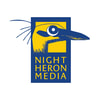|
Most writers assume an exquisitely written manuscript will get you published. While your manuscript will ultimately determine your chances for publication, many often underestimate one essential step of the publishing process: querying. Maybe you’ve never written a query letter, or you’re tired of agent/publisher rejections. Either way, you’ve come to the right place! Read on for NHM’s step-by-step guide to query letters. Step 1: Wrap Up Your Manuscript Many authors are tempted to submit query letters before they’ve finished their manuscript. Even though publishers and agents may take a while to get back to you, you don’t want to be unprepared for a manuscript request. Your manuscript should be the best it possibly can be before you query. And yes, that includes editing! Step 2: Check Agent/Publisher Guidelines Most agent and publisher websites provide guidelines for submissions. Make sure you edit your query letter for each person/place you apply to! Publishers receive countless letters each day, so you don’t want to give them any reason to discard yours. Step 3: Keep It Short and Sweet Since query letters should be short (300-450 words), you want to get right to the action. What is your connection to the agent/editor? Maybe you’ve been referred to this agent by an industry insider, or received a request from this agent/editor at a conference. If neither applies to you, you might mention why you wanted to query them in particular and then skip right to the most pertinent details of your manuscript: title, word count, and genre. Step 4: Hook ‘Em The same way your story has a hook, so should your query letter. Consider this the most important part of your letter. Don’t just outline your story—market it! First, explain what your story is about. While it may be difficult to whittle down your entire manuscript into just a few sentences, you’ll want to find a way to intrigue an agent/editor. Shock them with a twist, highlight the main conflict, or relate your book to other popular titles. Then, explain why readers will want to read your story. How will a reader feel after reading your book? What will they learn about the characters, or even themselves? Don’t skimp here. Publishers want to know why your book, in particular, will sell. Step 5: Introduce Yourself Tell the publisher who you are in relation to your book and writing experience. Here, you can include previous publications along with any awards or writing credentials. If your profession relates to your title, include that, too. Share anything that lends credibility to your work. Side Note: Don’t use this space to beg for representation, or lament your previous publishing attempts. Stay positive throughout your letter, even if you feel down about your publishing chances. Need more help? Review these bonus tips before sending off your query letter:
By Sydney Meve, Intern
0 Comments
Your comment will be posted after it is approved.
Leave a Reply. |
Categories
All
Archives
March 2022
|
|
Help preserve our history and share our stories through the book and media arts by making a tax-deductible donation today.
Night Heron Media is a 501(c)3 non-profit corporation registered in Texas.
|
Copyright © 2024 by Night Heron Media


 RSS Feed
RSS Feed